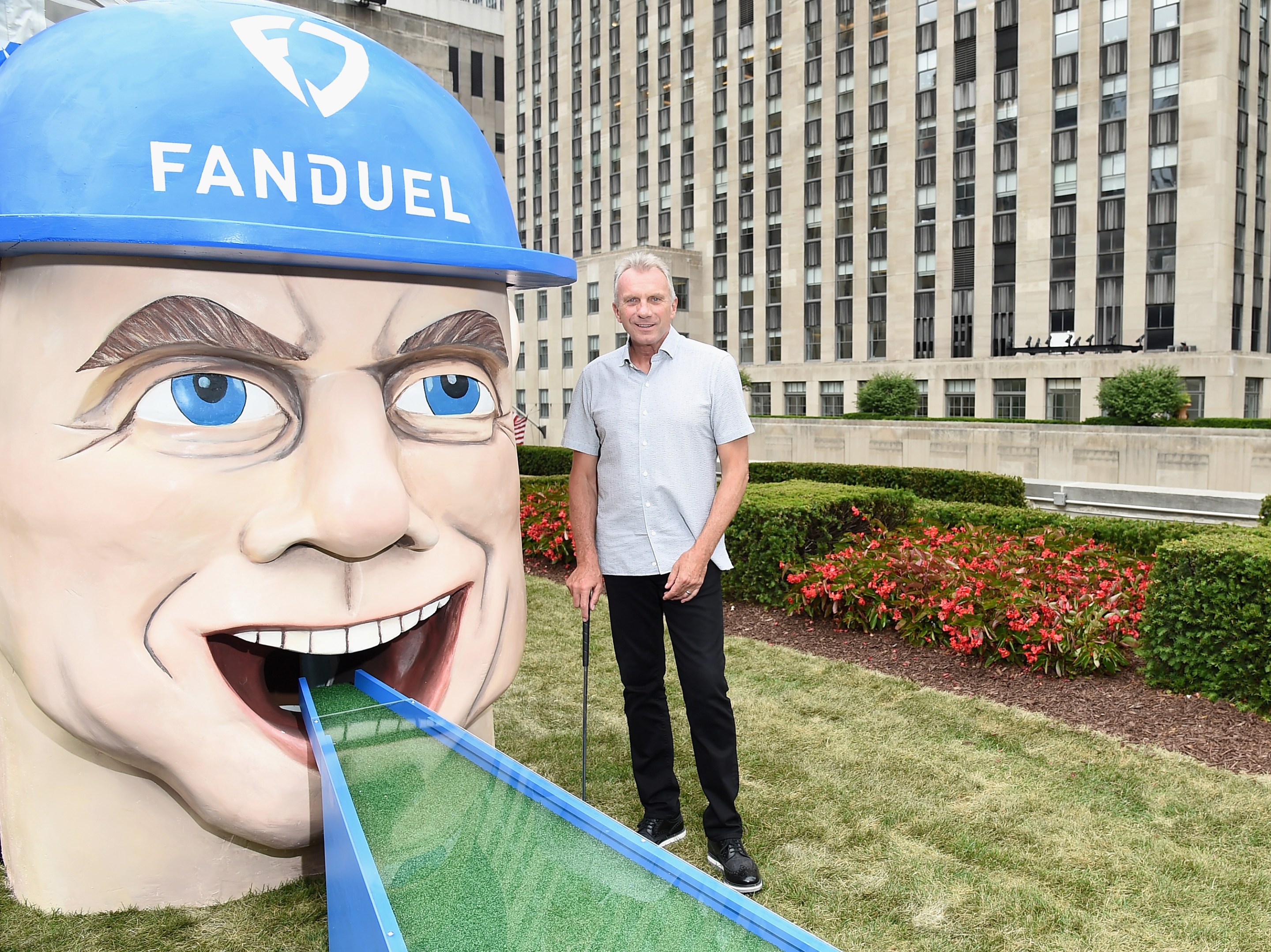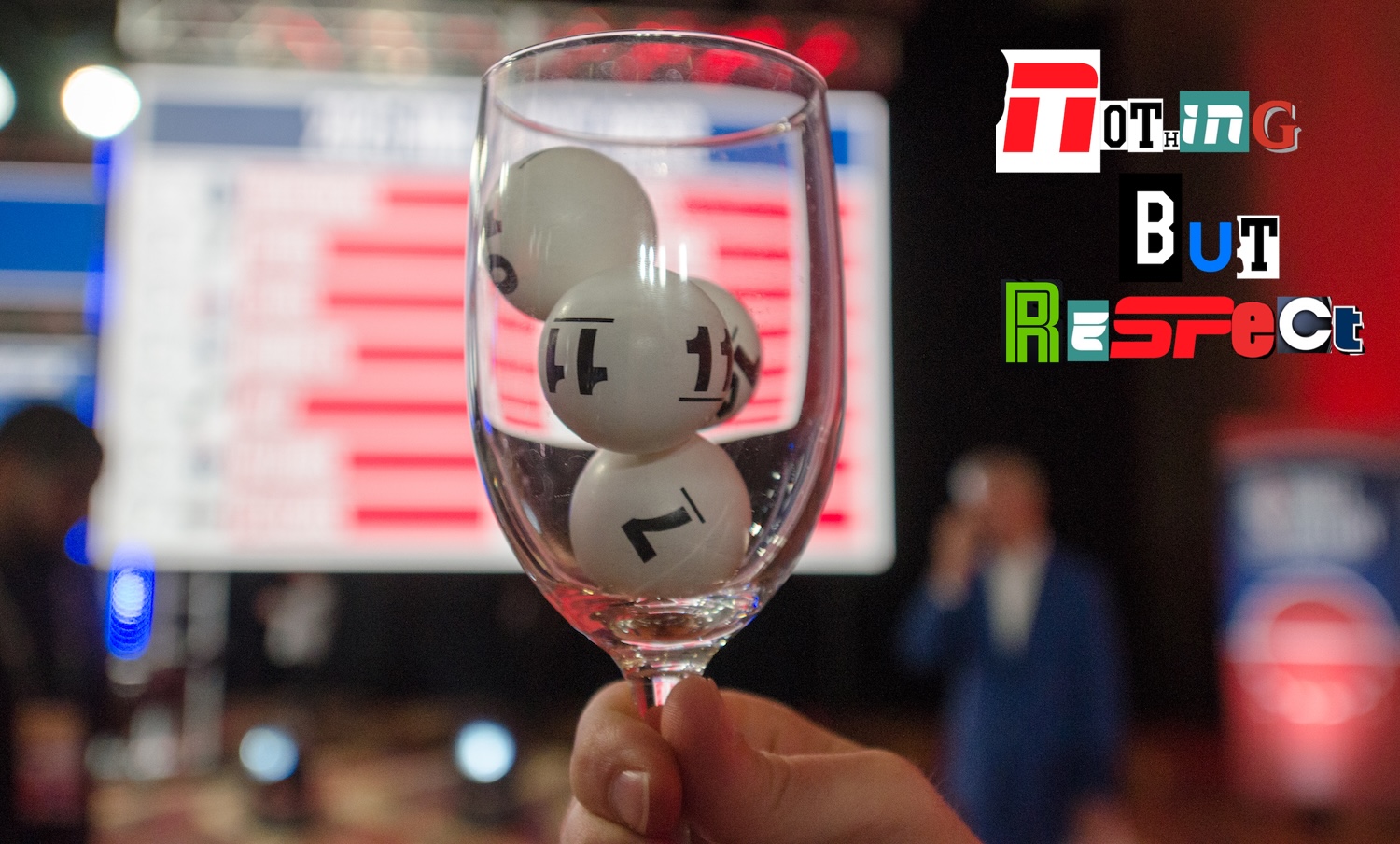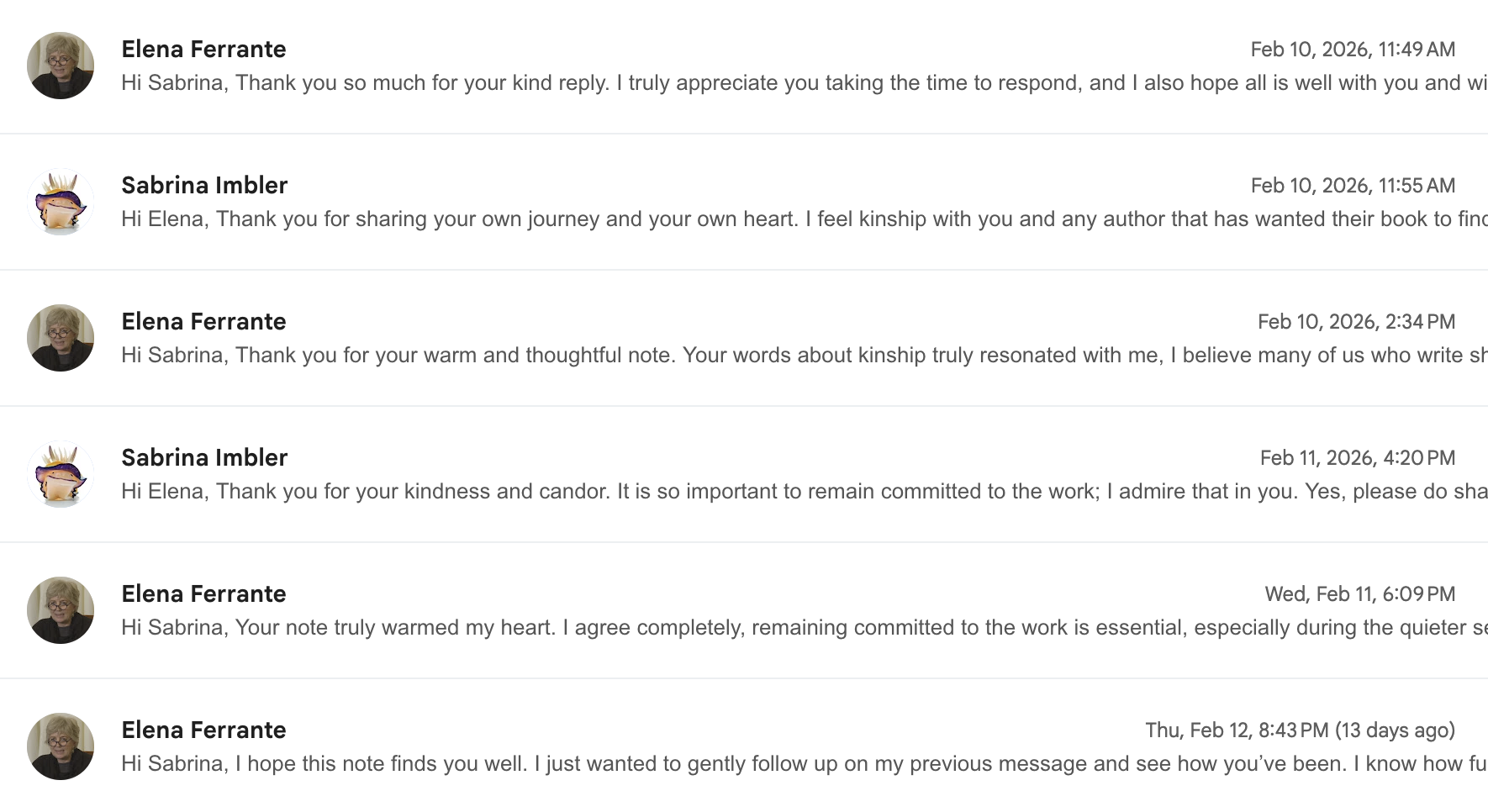There’s no greater testament to the emotional premium of watching live sports as they happen than the fact that ESPN, the biggest sports media enterprise in human history, continues to operate at least somewhat like it did in the past even as the rest of television struggles to find its way forward. As other television networks flail and sweat, ESPN goes on showing games and padding them with advertisements, to highly profitable effect. It’s an efficient, diversified business that nets a ton of passive engagement and which can be maintained for comparatively little money; their streaming service, ESPN+, is profitable, for Christ's sake, and those things are never profitable!
This is why it seemed so strange, late last year, when ESPN’s corporate parent, Disney, reportedly looked into selling the network. A media conglomerate was once a series of diversified interests, operating on vertically integrated channels that afforded access to the places people consume media—movie theaters, broadcast networks, cable channels, retail outlets. These concerns made stuff, sold it or put ads in it or both, profited, and then held the money in the air while everyone cheered. Tech has altered this, as both a matter of distribution and one of return on investment.
A profitable company is not necessarily seen as a successful company anymore, because a company’s value in the eyes of investors is no longer based on profit. It is based on the perception that the company will be more profitable in the future, which drives speculative valuation, which in turn creates more value for an investor than the piddly five-year projection type value that normal investors have to settle for. The modern media corporation is effectively a hedge fund—a collection of speculative assets that are expected to grow and grow, year after year. And to feed the dream of fully scalable infinite expansion, in every direction, forever, even a good business like ESPN needs to find new revenue streams.
A popular family streaming service, for example, might not be profitable, but it can sell itself to investors as a future utility—something all parents will someday need to have, and so also a money printer that will never run out of ink. The entire sports industry is captive to this pursuit, and to the investor-class fantasy of endless, boundless growth. The model they have landed on is selling you cigarettes through your phone. The ESPN Bet app launched in 17 states in November of 2023.
The Diagnostic and Statistical Manual of Mental Disorders, Fifth Edition, (DSM-V), represents broad psychiatric consensus on what does and does not constitute a mental disorder in human beings. For the most part, that consensus has pooh-poohed the idea of behavioral addictions. There is no official addictive statute for sex and love, or internet use, or shopping, or compulsive eating. Cultural consensus might see these things as addictive in a portion of the population, but science isn’t yet ready to make that call.
The one exception to this is gambling, which the DSM-V does recognize. About 1 percent of Americans have a gambling disorder; the consequences of problem gambling are terrible, doubly so in a country with a dogshit social safety net. Problem gambling devours time and money, alienates people from their family and friends, and creates debts that can take a lifetime to repair, even after seeking treatment. A study from 2019 found that problem gamblers commit suicide at 15 times the rate of the general population.
Addiction by Design, the sociologist Natasha Dow Schüll’s apocalyptic treatise on machine gambling addicts living in Las Vegas, is among other things a study of how gambling addiction can wreck a person’s internal reward systems. As you get further and further down the hole, Schüll writes, the rewards from winning become smaller, and are replaced instead by a compulsive pursuit of more risk, followed by a sunken, numbed out state where you abandon personal affect and are absorbed into the machine’s demands.
What makes someone susceptible? Problem gambling is higher in men and boys and people with other kinds of addiction problems. Much of it appears to stem from neurological quirks; people with Parkinson’s, for instance, are notably susceptible. Of course, if even the most susceptible person’s lifestyle doesn’t facilitate the hobby, this would all be moot. That is why gambling companies have worked so hard and spent so much to make gambling so hard to avoid, because there is a lot of money to be made off people with this itch.
It is both factual and not quite the whole story that the Supreme Court’s 2018 ruling in Murphy v. NCAA was the starting pistol for the ubiquity of sports gambling as it exists in this moment. That ruling held that the Professional and Amateur Sports Protection Act, a 1992 law that kept states from legalizing sports gambling in their borders, was unconstitutional, and let sports gambling apps get busy in state legislatures and on ballot initiatives; they have since managed to set up shop in 30 states, Washington, D.C., and Puerto Rico. Sports gambling and its various nasty knock-on effects had haunted American sports since the Black Sox scandal of 1919. After Arnold Rothstein and the mob fixed the World Series, sports leagues distanced themselves from gambling in the name of the integrity of the game. For a long time, sports betting was shady, the stuff of Vegas sports books and various friendly neighborhood proprietors.
There was always a lot of money jammed into that little niche. It was leaking out before PASPA was struck down; the internet mainstreamed talkers and writers who spoke openly about lines and wagers. Some of these talkers even ended up at ESPN, even though this talk was once anathema to anyone trying to be a league partner. Illegal offshore books made betting from home easier than ever before, but not as easy as it would soon become. But after Murphy, entities like DraftKings, FanDuel, BetMGM, and BetESPN were suddenly free to go get it, and to expand the pool of suckers to draw on. The products they sell cross the natural rush of gambling, the social buzz of sports discourse, and the smooth ease of use of app design. “We’ve basically created a dynamic ever-changing casino in our pockets,” said Dr. Tim Fong, the director of the UCLA Gambling Studies program, and an addiction treatment psychiatrist.
Some of the things these apps do are dumb, but easy—making it easier to put money in your account than take it out, for instance. Others are no less shady but are leveraged on other load-bearing human frailties; available bets and lines update constantly, for instance, using algorithms to adjust on the fly, which lets the apps function like an old-school Twitter feed. It’s a second screen experience that moves alongside the game, which keeps bettors’ passive attention on the machine, and all those new opportunities to bet. “I now have patients who have never set foot inside a casino in their entire lives,” Fong said. “The only gambling they’ve ever known is on the phone, the only gambling they’ve ever known is on the internet.”
Standard treatment for addiction involves working with people to avoid triggering environments. A casino on the drive home, for instance, might require a gambling addict to take another route. Most states require casinos to keep a Do Not Play list, banning anyone who comes in and confesses to a problem from the grounds. (Anyone who exhibits problem gambling tendencies but doesn’t ask for help will get an occasional wellness check and a steady stream of free drinks. It’s a predatory industry.)
The existence of a legal pocket casino that never closes makes this more difficult. “If I say to you, ‘Corbin: you gotta get rid of your phone, you gotta get rid of your access to the internet,’ you’re gonna say, that’s not treatment, it’s punishment,” Dr. Fong told me. “It’s the same thing as saying ‘Get rid of running water, get rid of electricity.’ That would make no sense in the modern day.” There are no federal regulations concerning problem gamblers on these apps, and state enforcement varies wildly. The companies, for their part, are feasting on whale meat. Per the Wall Street Journal, 0.5 percent of the customers at PointsBet, an online book owned by Fanatics, generated more than 70 percent of the company’s revenue in 2019 and 2020. Those users were treated to free credit, and special privileges up to and including Steelers tickets. The companies are only required to ask if a user is gambling outside their means if the gambler uses certain trigger phrases, such as asking a customer service representative for a line of credit. All of these companies are held accountable by state legislatures, which are, if we’re being nice, highly vulnerable to regulatory capture by large companies and their little armies of lobbyists.
Online gambling addicts “don’t have the casino industry helping you with recovery,” said Dr. Fong. “Things like self-exclusion programs, responsible gambling programs, with humans inside the casino, they’re designed to help people. [Online] you don’t have that.” Voluntary self-exclusion programs, in which a problem gambler requests a ban, are imperfect tools in the best of circumstances. The internet, where concealing one’s identity is a simple matter for anyone with moderate computer literacy, is not that.
“Recovery now has to be fought every minute of the day,” Fong went on. “In the past it was, ‘Only when you’re driving past the casino, when you’re inside the casino, is when you’re super vulnerable.’ Now, you’re vulnerable at all times.”
Fong quickly moved to temper that assessment. “That also means that there’s also an opportunity, every minute of the day, to do something positive. It isn’t just ‘You’re living in a world where there’s a constant threat.’ You’re also living in a world where there’s an opportunity for something good. That’s what we’re focusing on, which is very different from years past.”
His hope is that these companies and the government might take all this more seriously, and look to head off addictive behavior. One particular fix stood out to him: “I’d like to see them do better [to keep people] under the age of 21 from accessing their product.” Kids, with their shitty undeveloped sense of risk and plastic mental state, are far more vulnerable than adults; gambling addiction in children tends to trail into adulthood. Apps will claim they don’t allow kids under 21 on their websites, but you’re not stupid and neither are kids, who can easily figure out how to lie on the internet or use a VPN.
I recently spoke to Keith O’Brien, the author of Charlie Hustle: The Rise and Fall of Pete Rose, and the Last Glory Days of Baseball, for another story I was working on. The book paints Rose as a classic gambling addict, a terrible picker who didn’t play for money so much as he played for the rush that accompanies risk. Rose was primed for addiction from a very young age. He was also exposed to the practice at a very young age. “Gambling was a part of the culture that Pete Rose grew up in,” O’Brien said. “He lived in a home on the west side of town near the banks of the Ohio River, and just down the hill from his house was a little tavern where men were known to gamble. Kids sometimes gambled, playing games outside that tavern.” Rose’s father, “Big Pete,” was a devoted presence at his son’s baseball games, but also regularly brought his son with him to the horse races in Cincinnati. “When you ask Pete about what some of his fondest memories of childhood were, it’s hanging out at the racetrack with his dad, and cheering on whatever horse his father had bet on in that race,” O’Brien said. Whatever you could say about Big Pete’s parenting abilities, he did a really great job flipping the right switches in his young son’s brain.
Nowadays, the job of the miserable patriarch exposing you to addictive behavior that can ruin your life is performed by gambling apps and their little army of advertisers; you can find them on TV, podcasts, and billboards in stadiums. The entire sports landscape has been transformed into an advertisement for gambling, and advertisements for gambling inevitably turn a vulnerable portion of the population into problem gamblers.
“They’re supposed to follow laws set by each state,” said Fong, “but I don’t see a lot of enforcement of those laws. When all the advertising is unchecked, unregulated, and we have very little idea of what this advertising is doing to people, I think that’s a concern. Tobacco, alcohol, cannabis, they all have very sharp rules about advertising. I don’t see ads on ESPN about Raw Garden or Stizzy or KIVA Chocolates, right?” What gambling sites offer instead are caveats in tiny type, or read in hurried voiceover. “When you put the helpline number in an unintelligible message that no one can see or hear or understand, that is not effective prevention advertising in my book,” Fong said.
If you are even a passive consumer of sports media, you know about the role that sports gambling advertising partnerships have taken in the industry’s future plans for expansion. Interest in gambling drives interest in sports; an audience already interested in sports will see, alongside ESPN+ programming, random European basketball games, Southeast Asian cricket matches, and various college football games, dozens of things on which they could bet at all hours of the day; leagues, teams, and media companies have official partnerships with gaming concerns. Fears about gamblers influencing players or the tawdry world of gambling making a notionally wholesome sports product inaccessible to children have been kicked down the trash chute. Gambling’s relationship to pro sports is historical and habitual, yes. But the leagues creating a product that depends on gambling for its very existence is new.
Last year, Mark Cuban sold a majority portion of the Mavericks to the Adelson family, who are the owners of the Sands Casino and some of the worst people in America. The play was not just a cash-flow move for a leveraged billionaire. It was part of a new vision for the Dallas Mavericks, one in which the team’s new home arena—they’re angling for one now—is inextricable from a casino, where sports betting and watching the game were happily cuddled up together. Cuban made the sale because he thinks the Sands Corporation’s involvement will make his remaining chunk of the team that much more valuable; the idea, there, is that the new world of sports gambling will make owners rich in more or less the way that tech IPOs made people rich.
If you are a sportswriter or a fan, and your point of view is fixed on the stuff of sports, the winning and the losing and the roster construction, a neverending barrage of threats to outcomes might seem unbearably chaotic to you, an untenable state of affairs. Such a person can look at the torrent of speculation surrounding Shohei Ohtani’s gambling interpreter, or the tragicomic Jontay Porter gambling and ban in the NBA, and taste the future. Team owners, though, are capitalists, the most rapacious and valuation-oriented group ever to dump their money into the pocket of a 20-year-old, and as such have different interests and concerns. There is no reason to believe that even a steady stream of scandals would deter them until or unless it threatened their profitability. The safer option is to enforce the rules to the best of your abilities, act shocked and offended when the public expresses suspicion about the vagaries that plague the league, and keep the revenue pumping. Play it right, and the extra suspicion that clouds people’s perceptions will just give the audience another fun variable to speculate about.
But this shit is not consequence-free. Apps have no incentive to prevent addiction, and gambling addiction fucks people up. If it fucks enough people up bad enough, the gambling app economy could become something more akin to a public health crisis; if the federal government (finally, belatedly) comes calling on that front, how will a sports industry increasingly reliant on all those partnerships and gambling revenue respond?
There is a way to make money, or at least not lose money, gambling on sports, and people who do it. That work involves crunching numbers, diversifying risk, seeking out small inefficiencies; it is, more or less, a job. A friend I spoke to for the story made a bunch of money betting the under on steals for various defense-deficient NBA guards. It’s not glamorous, it’s not juicy, it provides no mondo paydays. It’s barely fun at all. Again: it’s work.
Sports gambling apps do not want people to gamble like that. What they want bettors to do is put money on parlays. Apps push them in that direction constantly, even offering “no-risk parlays” to whet a prospective gambler’s appetite for the harder stuff. When I mentioned slot machine gambling to Dr. Fong, he immediately mentioned the same-game parlay. It’s an inevitable winner for casinos that also looks and feels good for the casual gambler.
In Addiction by Design, Schüll talks to slot machine designers about the process of making an effective slot machine. (They’re all from Australia, for some reason.) They tell her that it’s mostly a matter of feeling—finding a way to build in enough winning to maintain hope in the player, but also enough losing to make it profitable for the casino. It’s pretty nauseating; reading about otherwise sane people succumbing to sophisticated Skinner Boxes is dispiriting, and terrifying.
Here is one way that could all look: You watch a game with the app open. It gives you a personalized stream of quick, ever-changing, algorithmically generated bets. It also tracks what you will bet on and what you won’t, and then adjusts to create something akin to a personalized slot machine; the idea is to create an experience that feels good to you. If you are even a little bit inclined toward problem gambling, this will bury itself deep, and it will take your money; it will all be, as it currently is in 30 states, legal. And you can play like this until the government or a medical professional intervenes, or doesn’t. Everyone with any skin in the game—every business interest that sees its fans as a renewable resource—wants that to exist.
Whatever form the product takes, there is clarity in the near future. The sports and internet sportsbook industries are determined to cultivate and profit not just from gambling but from gambling addictions; that’s where the money is. Sooner or later, if history is any guide, society will come to regard this as a public health concern. The clamps will come out and there will be some attempt to regulate the space into something approaching responsibility. Whenever it happens, it will be too late for a lot of people. How the sports industry will react when its dream of the new cigarette is extinguished seems, in contrast, kind of insignificant.






